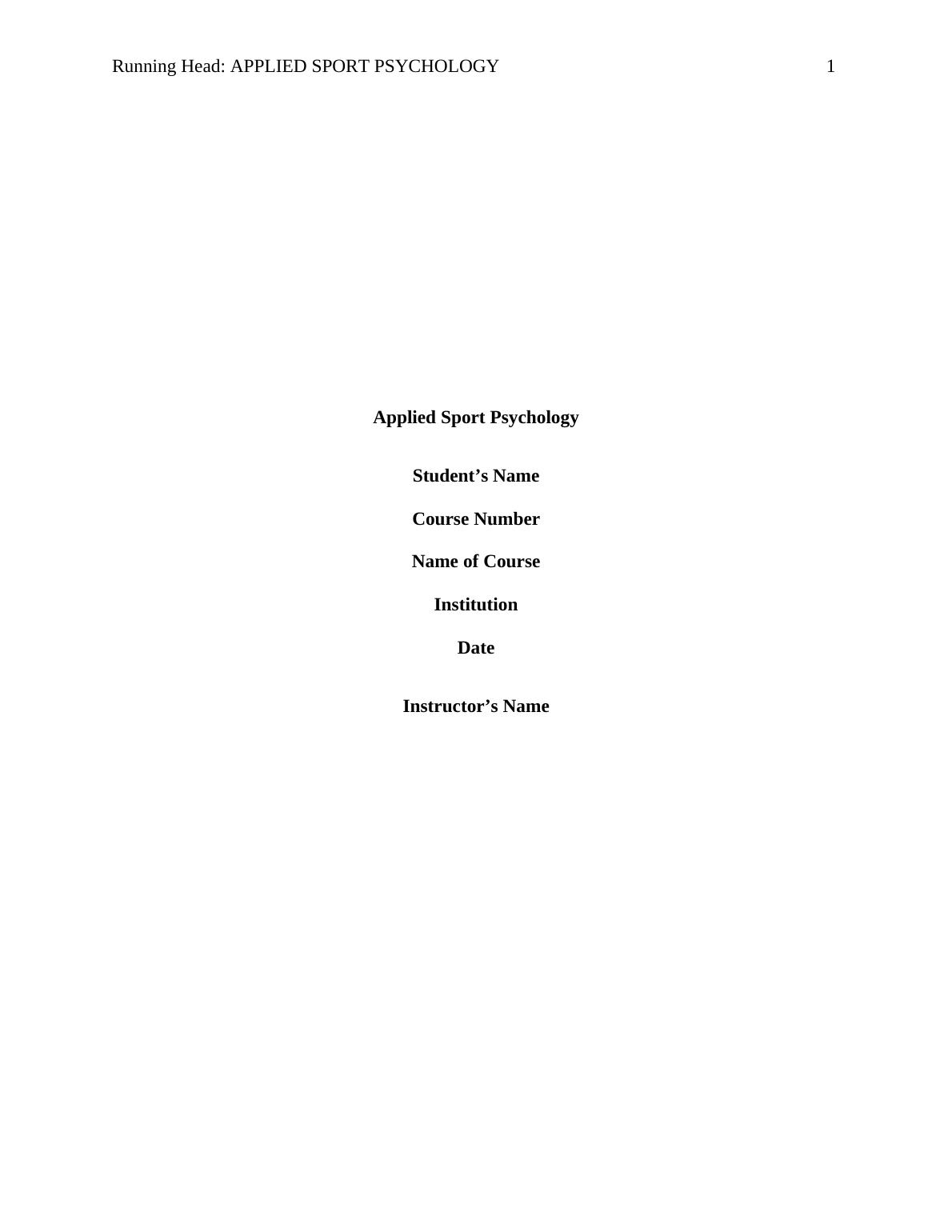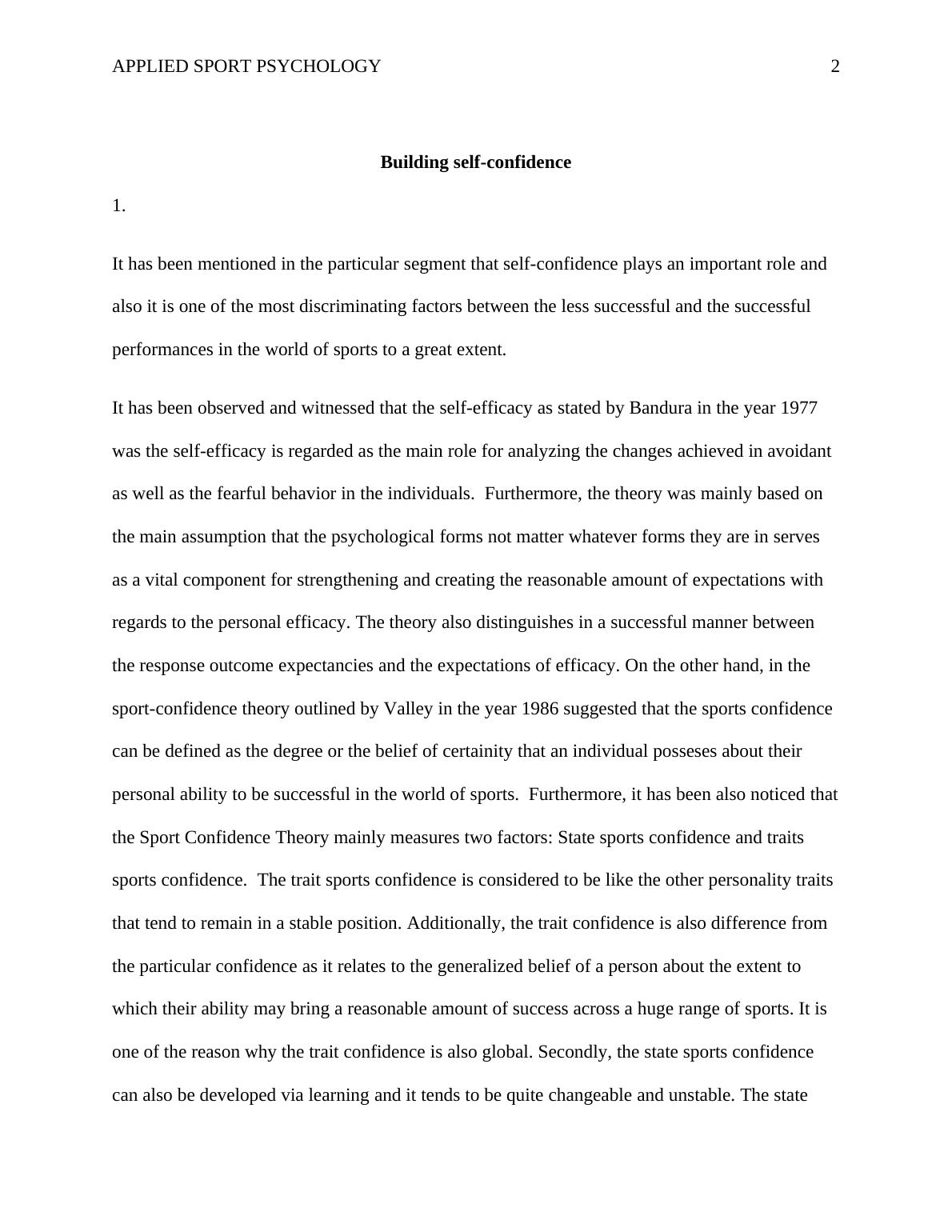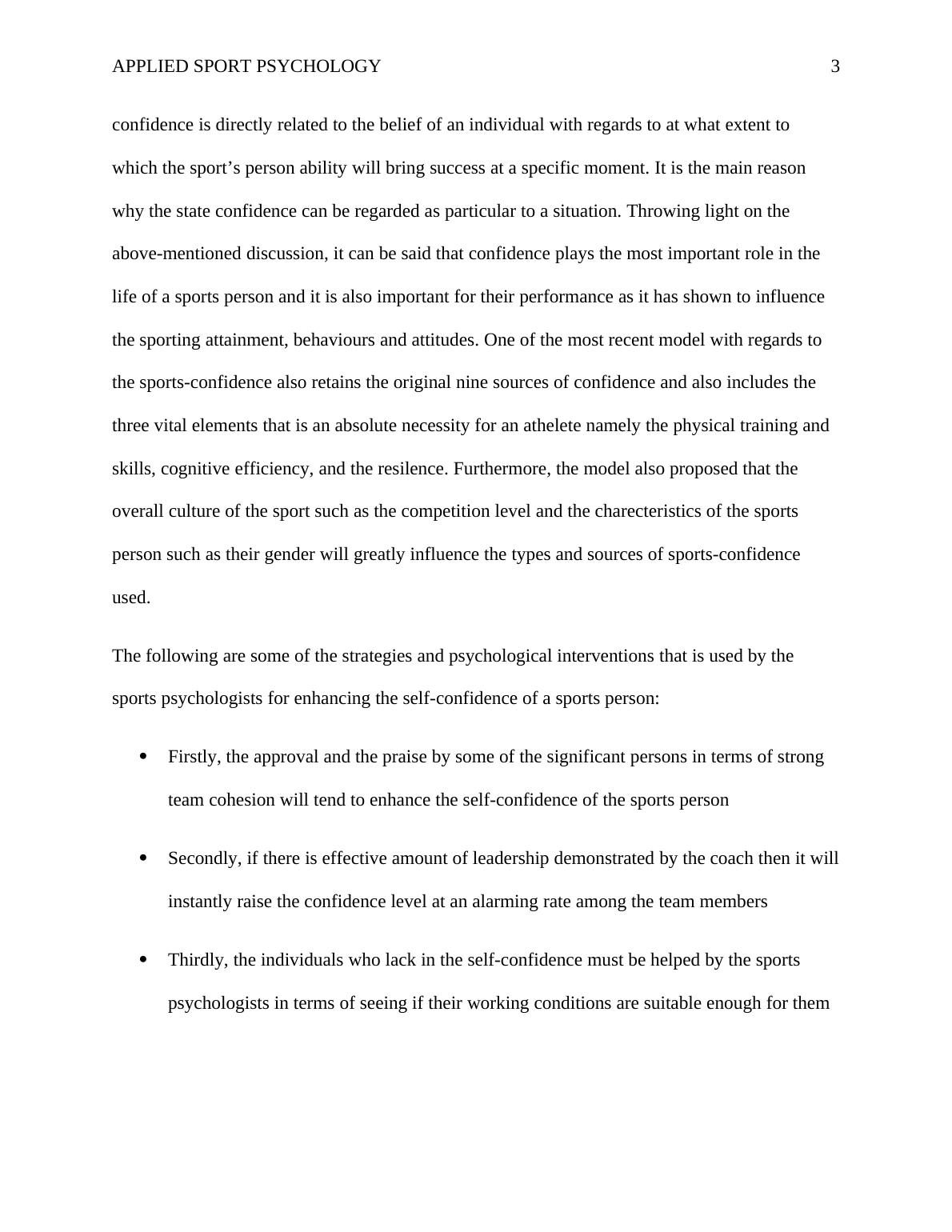Ask a question from expert
Applied Sport Psychology Assignment
7 Pages892 Words308 Views
Added on 2019-09-20
Applied Sport Psychology Assignment
Added on 2019-09-20
BookmarkShareRelated Documents
Running Head: APPLIED SPORT PSYCHOLOGY 1Applied Sport PsychologyStudent’s NameCourse NumberName of CourseInstitutionDateInstructor’s Name

APPLIED SPORT PSYCHOLOGY2Building self-confidence1.It has been mentioned in the particular segment that self-confidence plays an important role and also it is one of the most discriminating factors between the less successful and the successful performances in the world of sports to a great extent. It has been observed and witnessed that the self-efficacy as stated by Bandura in the year 1977 was the self-efficacy is regarded as the main role for analyzing the changes achieved in avoidant as well as the fearful behavior in the individuals. Furthermore, the theory was mainly based on the main assumption that the psychological forms not matter whatever forms they are in serves as a vital component for strengthening and creating the reasonable amount of expectations with regards to the personal efficacy. The theory also distinguishes in a successful manner between the response outcome expectancies and the expectations of efficacy. On the other hand, in the sport-confidence theory outlined by Valley in the year 1986 suggested that the sports confidence can be defined as the degree or the belief of certainity that an individual posseses about their personal ability to be successful in the world of sports. Furthermore, it has been also noticed thatthe Sport Confidence Theory mainly measures two factors: State sports confidence and traits sports confidence. The trait sports confidence is considered to be like the other personality traits that tend to remain in a stable position. Additionally, the trait confidence is also difference from the particular confidence as it relates to the generalized belief of a person about the extent to which their ability may bring a reasonable amount of success across a huge range of sports. It is one of the reason why the trait confidence is also global. Secondly, the state sports confidence can also be developed via learning and it tends to be quite changeable and unstable. The state

APPLIED SPORT PSYCHOLOGY3confidence is directly related to the belief of an individual with regards to at what extent to which the sport’s person ability will bring success at a specific moment. It is the main reason why the state confidence can be regarded as particular to a situation. Throwing light on the above-mentioned discussion, it can be said that confidence plays the most important role in the life of a sports person and it is also important for their performance as it has shown to influence the sporting attainment, behaviours and attitudes. One of the most recent model with regards to the sports-confidence also retains the original nine sources of confidence and also includes the three vital elements that is an absolute necessity for an athelete namely the physical training and skills, cognitive efficiency, and the resilence. Furthermore, the model also proposed that the overall culture of the sport such as the competition level and the charecteristics of the sports person such as their gender will greatly influence the types and sources of sports-confidence used.The following are some of the strategies and psychological interventions that is used by the sports psychologists for enhancing the self-confidence of a sports person:Firstly, the approval and the praise by some of the significant persons in terms of strong team cohesion will tend to enhance the self-confidence of the sports personSecondly, if there is effective amount of leadership demonstrated by the coach then it willinstantly raise the confidence level at an alarming rate among the team membersThirdly, the individuals who lack in the self-confidence must be helped by the sports psychologists in terms of seeing if their working conditions are suitable enough for them

End of preview
Want to access all the pages? Upload your documents or become a member.
Related Documents
Applied Sport Psychology | Assignmentlg...
|6
|1576
|69
Applied Sport Psychologylg...
|8
|1943
|214
Sports and Exercise Psychology (Doc)lg...
|4
|760
|85
PSCY2019 Social Psychology Assignmentlg...
|9
|2557
|133
Psychology Assignment | Self Efficacy Theorylg...
|3
|578
|60
(PDF) Self‐Efficacy: A Concept Analysislg...
|11
|2791
|16